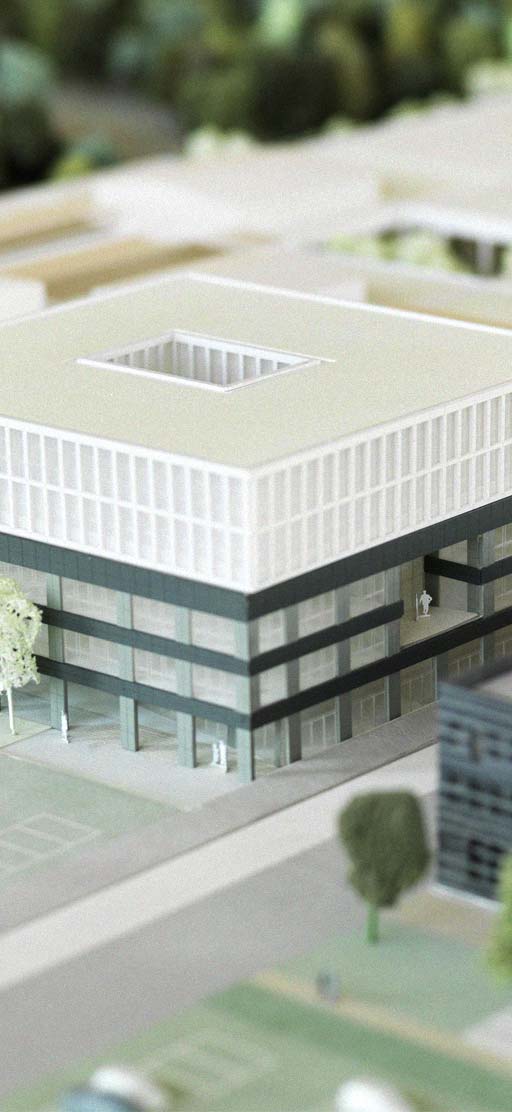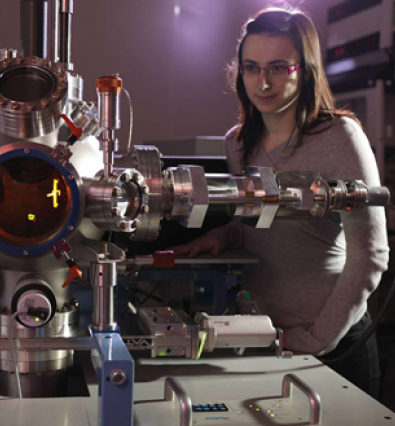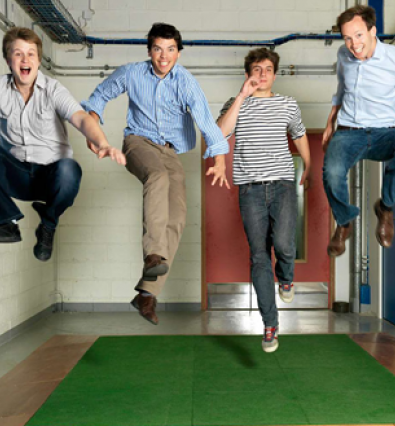TUITION FEES
For the first two years, tuition fees will be paid in euros (€) at CentraleSupélec. For the two last years, fees will be paid in dollars ($) at McGill.
At CentraleSupélec
- Tuition fees 2024 are 44 000 €/year or 7 900 €/year for reduced rate. Students from the European Union* (including the French) and Canadian students (including the Quebecois) benefit from a reduced rate: 7 900 €/year. Students with dual nationality pay the most advantageous rate.
- Society & other fees (CVEC) : 95 €
- Healthcare: if you are a foreign sudent or a French student born in New Caledonia or Wallis and Futna, the steps to take according to your situation and those required to receive your healthcare reimbursements are explained here.
At McGill
- In years 3 and 4, tuition fees will be those in effect for the Fall 2024 school year.
- Information on McGill website. *Conditions and supporting documents to be produced for exemption from part of the registration fees for the international students for whom it is their first registration at CentraleSupélec are available in the document below.
ADMISSION
Where do I apply? Should I apply via Parcoursup or ANIMA?
Applicants can apply using the CentraleSupélec - McGill admissions platform through the link on our website or via Parcoursup: Bachelor en sciences et ingénierie - Ingénierie généraliste, en partenariat avec l'université Mc Gill (formation 39291).
At what point do candidates find out if they have been accepted?
For students applying through the School’s website, the application timetable may vary depending on a variety of factors. Some applicants may be invited for an interview very quickly; others may wait for several weeks. Once the interview has taken place, successful applicants will be notified within two weeks.
If students are applying through Parcoursup, information about acceptance to the program will be made available based on the official calendar.
I am missing certain documents to complete my application. What should I do?
Contact the Admissions Team at CentraleSupélec. They will outline the procedure that you need to follow. In most cases, we can reopen your application later so you can add the missing documents.
What profile is the best fit for this program?
This program was designed for a fast-changing world, to address corporations’ needs for engineers, and to train future leaders. Over and above a classic engineering curriculum, students will develop and further study relevant issues and develop critical skills during the four years, including climate change, new technologies, digitalization and programming, innovation, complex problem solving, team work, interculturality, communication, corporate behavior, and analytical capabilities.
Is the English certification deadline in May or July?
For applicants applying through CentraleSupélec’s application platform, it is preferable to provide proof of language certification as soon as you apply. Students applying through the Parcoursup platform have until July to submit their proof of C1 language level. Please note that no student will be permitted to enroll in the program without official documentation of his/her language level.
Do I need a proof of proficiency in English?
Proof of proficiency is necessary to enter the Bachelor of Global Engineering.
A few exemptions apply to this rule: if you answer 'yes' to any of the following questions, you do not need to provide proof of English proficiency:
- Have you lived and attended high school and/or university, for at least four consecutive years, in a country where English is the acknowledged primary language?
- Have you completed a DEC at a French CEGEP in Quebec and the Quebec Secondary V diploma?
- Have you completed a DEC at an English CEGEP in Quebec?
- Have you completed or will you complete a French Baccalaureate - 'Option Internationale' (British or American section)?
- Have you completed or will you complete an International Baccalaureate (IB) Group 1 English (Language A: Literature, Language A: Language and Literature, or Literature and Performance) with a ‘5’ or better?
- Have you completed or will you complete English as Language 1 or Language 2 in the European Baccalaureate curriculum (in the Schola Europaea system)?
- Have you completed or will you complete the British Curriculum A-Level English with a final grade of C or better?
- Have you completed the British Curriculum GCSE / IGCSE / GCE O-Level English, English Language, English First Language, or English as a Second Language with a final grade of B (or 5) or better?
How are student visas for Canada handled? What support is there for this?
Applications for Canadian visas must be submitted to the Canadian Embassy by students in a timely manner. The Office of Undergraduate Studies will do its best to support and inform students. However, each student must process the necessary paperwork. The administrative procedure is long and students will be encouraged to begin visa applications at the start of the 2nd year.
If I haven’t had biology classes before joining the program, will it hurt my ability to do well in the Bachelor?
Many students enrolled in the Bachelor of Global Engineering did not take Biology during their final years in high school. The first-year courses in Chemistry and Biology are designed with that in mind. Students will need to work regularly, but it is a perfectly attainable goal.
FINANCIAL SUPPORT AND PAYMENTS
What financial support is available for this program?
inancial support is available for Bachelor of Global Engineering students, both needs-based and merit-based. These scholarships are awarded directly by the selection committee based on the examination of candidates’ application file. The scholarships are given in the form of a reduction in tuition fees over the course of the program. The program is also recognized by the CROUS. Students who are entitled to a French CROUS bursary will have their tuition fees calculated based on their bursary level.
Once a student is accepted into the program, they will receive information about how to apply for this aid.
CONTACTS - EXCHANGES WITH SCHOOL AND STUDENTS
Is it possible to speak with students currently in the program?
You can contact admissions@centralesupelec.fr and ask to be put in contact with a student ambassador. You can also sign up to attend one of the online webinars presenting the programs and ask your questions to one of the students on the panel.
If you live in the Paris region, student ambassadors will be present at the Open House sessions to tell you more about the program.
ACADEMIC PARTNERS, INDUSTRY PARTNERS, INTERNSHIPS
What kind of networking or support can students expect for being hired by industry upon graduation?
The Corporate Relations and Development Department (DREV) at CentraleSupélec has been working actively to raise awareness about the school’s new Bachelor programs.
Since the very first months of the program’s existence, students of the Bachelor of Global Engineering have been in contact with the corporate world.
During the program’s Coding Weeks sequence, undergraduate students spent a week onsite with one of CentraleSupélec’s corporate partners. During the Modelling Week sequence some of the school’s partners attended the presentations sessions and met with students.
Many projects are being developed with corporate partners to help students engage with the business world, find suitable internships and discover professional opportunities.
Alongside this contact with business, students are also coached to improve their job-searching skills.
More generally, as students of both CentraleSupélec and McGill, Bachelor students will be able to build on the professional networks available in both schools as well as the careers services offered on both sides of the Atlantic.
Does this program include internships?
A 5-week Social and Environmental Community Internship (SECI) will take place between Year 1 and Year 2. This internship aims put students of the Bachelor of Global Engineering face-to-face with concrete social issues that will raise their awareness about the values of commitment and action on the ground in a community framework.
The SECI should expose the student to the social or societal challenges of the 21st century world. To achieve this, the content of the SECI should align with at least one of the UN’s 17 Sustainable Development Goals (SDGs). Ethical aspects and social and environmental responsibility (CSR) will be observed during the internship and addressed during the starting days.
A 5-week Company Discovery Internship takes place between Year 2 and Year 3 during which students work in an international firm, possibly rotating positions, in order to become acquainted with the company’s culture, activities and challenges.
A 3-month Global Project Internship will take place between Year 3 and Year 4. This will involve full-time remunerated engineering-related work in a private or public practice.
Is the 3rd year internship part of the Canadian "co-op" program?
The program is not part of the Canadian “co-op” program.
HOUSING
How does the housing work?
Once students have accepted the offer of admission to the program and made the initial down payment, they will then receive an email from CentraleSupélec with information detailing the procedure for accessing housing on campus. Bachelor students on the CentraleSupélec’s Saclay campus can access housing in the nearby Césal residences. In order to secure housing, students will be asked to pay a €1800 reservation fee.
Are students accepted into the BSc GE assured on-campus housing?
For the first year BSc GE students can book on-campus housing according to the rules and process that will be communicated to admitted students.
ACADEMIC YEAR ORGANISATION AND PEDAGOGY
How many hours of instruction per week should be expected?
The Bachelor of Global Engineering is a demanding program. The first two years at CentraleSupélec seek to provide students with all the prerequisites necessary to integrate the full selection of program streams at McGill. This means that students are given the opportunity to explore a broad range of disciplines. The weekly course schedule is, therefore, quite dense. Students can expect to have 30 to 35 hours of classroom work per week. In addition to this, they will need to work independently outside the classroom.
Does the program do orals on a weekly basis?
The oral system used in the French prep school system has not been implemented in the Bachelor of Global Engineering. However, during the first two years at CentraleSupélec, students do work in small tutorial groups for their Mathematics and Physics courses.
The tutorial structure is used with classes of roughly 12 students who work alongside one another on whiteboards, solving problems assigned and overseen by teaching assistants. This means that students will have considerable scope one-on-one with the TA to hone problem-solving skills. Likewise, language courses are taught in two formats: 1.5 hours a week in seminar format and 1.5 hours with a junior assistant in very small groups.
There are many subjects on offer in the first 2 years at CentraleSupélec - how are the subjects grouped for selection, how do students choose?
Most courses are compulsory during the first two years of the program. Students build a broad knowledge in all the sciences required in the field of engineering.
Each CentraleSupélec year is organized around 4 teaching “Sequences”. Each of these sequences lasts six weeks. Mathematics and Physics are at the heart of the scientific program and are systematically taught during all eight sequences at CentraleSupélec. The other disciplines that make up the program rotate from one sequence to the next. In other words, Computer Science, Chemistry and Biology will be taught during two or three sequences each year. This science schedule is identical for all students.
Each six-week sequence is followed by an exam week. This in turn is followed by a two-week session geared towards teamwork, projects and business skills. During these sessions, students may be given a certain amount of choice to pursue a specific angle of study.
During the second year at CentraleSupélec, students have one choice of elective. The aim is to ensure students acquire the full breadth of technical knowledge needed to integrate into the chosen stream at McGill.
At McGill, courses are divided into compulsory courses, electives from the humanities (3 over the 2 years) and technical electives (1 or 2 in Year 4). The electives from the humanities will be chosen from a catalog that is the same for all the streams while the technical electives will be different for each stream.
How does the shift from CentraleSupélec to McGill work?
Students will discover two different approaches to engineering and higher education during the four years of study.
The two years of the program at CentraleSupélec have been designed specifically for the students of the Bachelor of Global Engineering.
Course formats align with the breadth of the French approach to engineering studies. During the two years at CentraleSupélec students are in classrooms dedicated exclusively to the BSc GE.
Instructors from the Global Engineering team will work with the cohort at a variety of moments throughout the two-year period. In short, students are working with a dedicated team of instructors within a closely knit cohort.
Bachelor of Global Engineering students will be enrolled in courses from the Engineering course catalogue that pre-exist the creation of the BSc GE program. This means BSc GE students will be mixing directly with students who have already been at McGill for a year or two. Professors will be less aware of the origins of each of the students in the classroom.
At CentraleSupélec, courses are organized in 6-week "sequences” and delivered in a variety of formats: lectures, seminars, tutorials, labs, projects etc. Other than language and sports options, all students must complete an identical range of courses. Each six-week course period is followed by an exam week, which is then followed by a week of project/teamwork.
At McGill, the semester lasts 13 weeks with no interruption. No matter which stream is chosen, all students will be expected to take 5 or 6 courses per semester. These courses are divided into compulsory courses, electives from the humanities (3 over the 2 years) and technical electives (1 or 2 in Year 4). The electives from the humanities will be chosen from a catalog that is the same for all the streams while the technical electives will be different for each stream.
What is the grading system/methodology used for this program?
Each instructor is free to define the grading system applicable to the course.
At CentraleSupélec, most courses use a French-style grading system, with marks out of 20. Depending on the course, the final grade is likely to be calculated based on in-class quizzes, lab work, homework assignments and a final exam. In some cases, the final exam may be replaced by a project (either individual or group).
In Montreal, the McGill grading system will be applied. Transcripts will provide both the French grades and the McGill equivalent, as well as a GPA score.
At what moment do you choose the specialization stream?
The process of choosing the specialization stream kicks in at the start of Year 2. During the first weeks of the 2nd year, students will attend seminars with McGill professors to better understand the course structure of each engineering stream. Meetings with corporate partners during the first months of Year 2 will enable students to better grasp which streams lead to which professions.
What is the benefit of a 4-year North American style bachelor degree compared to a 3-year European degree?
The 4-year Bachelor's degree is the international norm. Employers in Canada and the US are more likely to recognize graduates from a 4-year program than a 3-year program. For students who choose to stay in Quebec at the end of the program, after 2 years of work experience they will also have the possibility of joining the “Ordre des Ingénieurs” thanks to the 4-year format.
For students intending to pursue their studies at the Master’s level, the 4-year bachelor program allows them to seek admittance to programs in North America as well as Europe.
The 4-year structure provides the opportunity for students to benefit from 2 full years on each campus, as well as professional experience in more than one country.
What time do classes start and end, typically?
8h – 18h, except Thursdays: afternoons are free
During the school year, is there access to the teaching staff to consult on students’ progress?
Most instructors at CentraleSupélec have office hours and take the time to address students’ individual questions.
Teaching methods - what proportion of class is lectures versus project work?
Teaching and assessment methods are variable from one course to another.
Math courses include lectures, seminars and tutorials. Physics courses follow the same format but also include labs. Chemistry and Biology courses include lectures and labs. Computer Science courses are mainly taught in seminar format. Off-sequence courses tend to be based on project work.
Roughly speaking, this means that each sequence is made of 6 weeks of “on-cycle” lecture/seminar/tutorials followed by 2 weeks of projects.
CAMPUS LIFE
Is the CentraleSupélec Incubator program accessible to BEng GE students?
CS has a dynamic incubator that helps students grow their start-up projects. Bachelor students who either have a project or who wish to become involved in other students’ fledging start-ups are welcome to work with 21st by CentraleSupélec.
What are the requirements to create a student association?
Students are free to join existing associations or to create a new association. This year the first cohort of bachelor students created a student society dubbed the “Bureau des Bachelors”, which strives to propose both support and fun events for Bachelor students. Many fledging associations at CentraleSupelec are created with a status of “Clubs” under the umbrella of the “Bureau des Elèves” rather than “Association 1901” status but students are free to choose the format best suited to their aims.
For the cohort, what opportunities are there to integrate with the other students on campus?
Bachelor students have Sports classes with students from the School’s traditional Engineering Curriculum. There are also opportunities for bachelor students to mix with students from other programs through involvement in community life. Bachelor students are active in technical clubs, arts clubs, public speaking activities, sports teams as well as many other events and societies.
AFTER GRADUATION
Are there any transferrable credits or advantage to continuing with McGill or CentraleSupélec for a master's degree?
There should be no need to transfer credits to pursue a master’s degree either at McGill or CentraleSupélec. Any student graduating from the program will be in a position to apply directly to the master’s degree of their choice.





